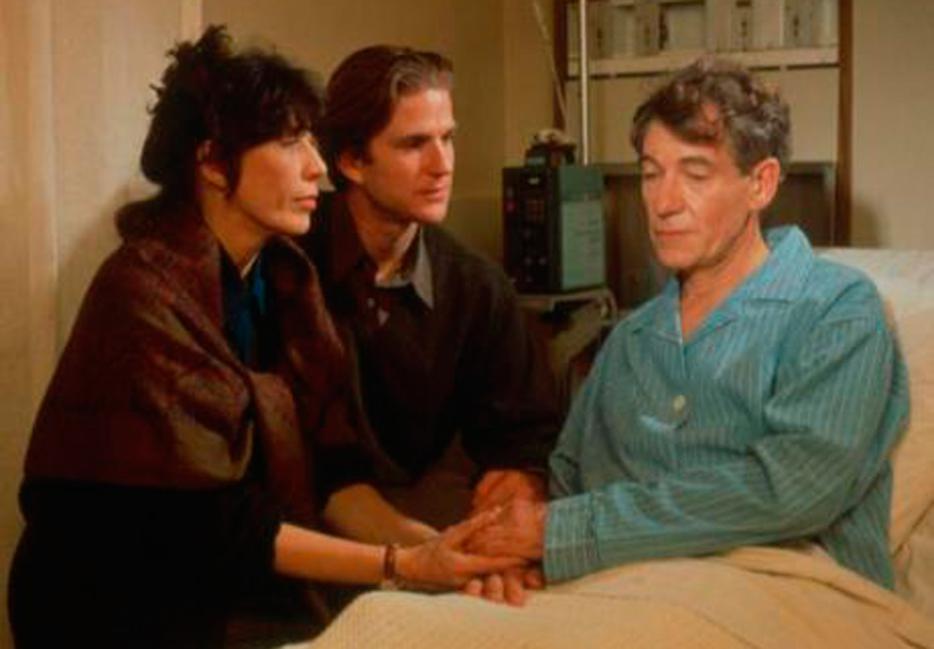On Monday, the Proceedings of the National Academy of Sciences published a paper about some startlingly good news: researchers at the Temple University School of Medicine and the Case Western Reserve University say they may have found a path to, per their article, “a viable path toward a permanent cure for AIDS, and ... a means to vaccinate” against HIV. There's a plain-English explanation of their research here, in which the author notes that even if this approach doesn't work, there's still other promising research being done in gene therapy to combat HIV.
We've seen good news on HIV research go sideways before, of course. Recently, an HIV-positive baby doctors believed they’d cured with aggressive treatment in the first day of her life was revealed to still have the virus replicating in her cells. It's a terrible reversal, not least of all for the child herself. Meanwhile, clinical trials for prospective HIV vaccines have been stopped more than once without forging that sharp sword for which we've been waiting for more than 30 years.
I'm only a few months older than the AIDS epidemic; or rather, I was born a few months before the Centers for Disease Control began to identify clusters of men around the US with Pneumocystis pneumonia that would later be identified as a symptom of AIDS. People my age and a bit older have never really known a world without HIV. Thanks to the ignorance of childhood, people only a bit younger (five years, give or take) may not remember a world without the protease inhibitors and antiretroviral combinations that started the long journey from AIDS as a death sentence to HIV-positive as a diagnosis.
Between those two bookends, of course, a catastrophe occurred, and is still unfolding. And The Band Played On by Randy Shilts has some faults as a medical history, but as an indictment of the American political reaction to HIV, it's still unsurpassed. (Shilts was so committed to his journalism he refused to know the results of his HIV test, lest it bias the writing of Band.) The American government had to be shamed and browbeaten into committing serious resources to the fight against AIDS, due in large part to the homophobia that pervaded the time. Pharmaceutical companies were confronted with protests from the diagnosed and the dying over long approval times for potential treatments.
Meanwhile, any number of people lost their goddamn minds, with some notable conservatives spending the 1980s calling for internment camps for HIV-positive patients.
The first victory against HIV came too late for millions of people, and the final one, whenever it happens, will be too latefor at least 40 million people who have died from it and the million-plus who continue to die every year. So the notion that it might not actually be too early to imagine what a post-HIV world might look like is hard to wrap my mind around. HIV has been any number of things in my life: political cudgel for the religious right, claiming it was a sign from God; warning from public school teachers, who'd found the incarnation of all the reasons anyone needed for a puritanical sex-ed curriculum; and of course, a monster in the shadows of my early adolescence that killed good people.
Given what HIV has done (and continues to do) to the LGBT community, it's no great surprise that the appearance of effective HIV prevention in the form of the drug Truvada is causing more debate about how it will change the lives of people who've been shaped by the virus in the developed world more than anyone else. Most people living and dying with HIV aren't in the developed world, of course. Of the 35 million people infected in 2013, 25 million or so were living in sub-Saharan Africa, and any solution that doesn't include the global poor isn't a real solution. And yet, it’s somehow upsettingly easy to imagine the monstrous scenario in which we actually develop a vaccine for HIV, or a cure, only to tell the world's poor they have to wait until the patents expire to get it for cheap.
Once upon a time, smallpox and polio were regular killers all over the world. Smallpox has been eradicated (with the alarming exception of unguarded federal office cabinets), and in the wealthy west, so has polio. Those diseases, though, had been with us for centuries, and shaped our history. HIV exploded into a global pandemic in a matter of years, but may not last a full human lifespan, thanks to a war waged by wise counsel.
It's easy to be overwhelmed by the daily drumbeat of horrible headlines, but there's real comfort in the fact that science can defeat, or at least defang, one of the world's most notorious killers. As we wait for the next one, that's at least something we can bequeath to the future.






